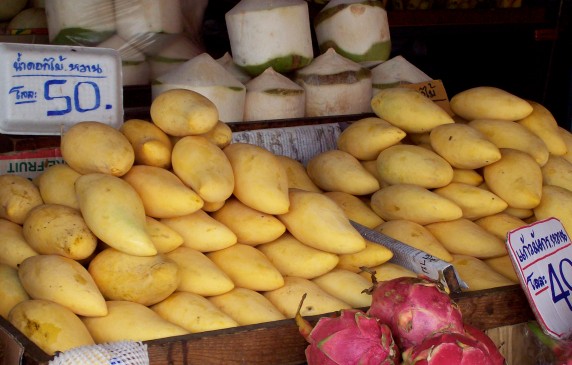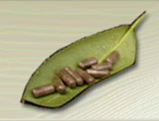 Loading... Please wait...
Loading... Please wait...Co2 Full Spectrum Holistic Herbs
Blog - vata
Ayurvedic ways of living a Healthy Life: Balancing your Doshas
Posted on 25th Jul 2014
Ayurveda is one of the most ancient systems of medicine used for healing and treating illness. However Ayurveda has many facets other than purely medicinal. The more you explore, the deeper you go, the more enlightening is the knowledge that shows you different ways, all of which lead you toward a blissful life.
Ayurveda defines “body” in the form of three “Doshas”. The human body is made up of three Doshas – Vata, Pitta and Kapha. It is important to keep these Doshas balanced within the body to live a healthy and peaceful life. Vata is derived from Air and hence regulates bodily functions such as respiration, blood circulation, mental activity and physical movements. People with imbalanced Vata may suffer from physical and mental illness. Balancing Vata is a difficult task but it’s not impossible. Performing specific Yoga Asanas and Meditation with a combination of a balanced diet would yield magical results. Pranayam helps regulate the respiratory activities and cleans the respiratory pipe, increasing the oxygen level in the blood. Also it helps stimulate the nervous system. Sun Salutation & Meditation can be accompanied with Pranayam to stimulate the physical and mental activities. It is important to follow a balanced diet while practicing Yoga. People with predominant Vata should include foods that provide instant energy and warmth to the body.  Ginger, cardamon, cinnamon, almonds, pumpkin, lemon, carrots, asparagus, bananas, mangoes all help warm the body and enhance circulation. Drinking warm water and herbal teas helps decrease the chances of dehydration and prevents hunger pangs.
Ginger, cardamon, cinnamon, almonds, pumpkin, lemon, carrots, asparagus, bananas, mangoes all help warm the body and enhance circulation. Drinking warm water and herbal teas helps decrease the chances of dehydration and prevents hunger pangs.
Pitta derived from Fire and Water is the major source of energy for the human body. A Pitta imbalance is commonly found in Humans during the Summer Season when the solar power drives the Pitta. Excessive heat generation in the body, peptic ulcers, hot flashes, acid reflux, and inflammation are all physical problems one may suffer from Pitta imbalance. At the same time, one can suffer from mental problems such as aggressive behavior, anger, impatience, anxiety, and frustration. To balance Pitta, one should practice a daily routine with clearly defined hours of sleeping, eating, working and other regular activities. Gentle Yoga Asnas with a blend of Pranayam and Meditation will keep the body calm and cool. Diet should include watery fruits like watermelon, cucumber, and coconut. Avoid oily and spicy food in summer season and drink plenty of water. Water helps to keep the fiery Pitta calm and cool by hydrating the body. Wear light colors and cotton clothes to help control perspiration in the scorching heat of summer.
Kapha is made up of Water and Earth and is present in liquid form in the body. All the fluids and cellular activities are driven by Kapha. Kapha regulates the immune system in the body. It lubricates the joints and skin and is responsible for cellular growth. Kapha imbalance leads to problems like excessive body weight, lethargy, emotional weakness and depression, fatigue, and poor immunity. To balance Kapha, rigorous exercise is recommended with Meditation and Yoga to activate sweat glands and stay motivated.  To improve body fluid circulation, drink herbal tea containing ginger, cinnamon, and clove essence, which help eliminate excessive mucous from the system. Avoid cold, sticky food like ice cream and cheese. Instead, opt for warm and stimulating foods.
To improve body fluid circulation, drink herbal tea containing ginger, cinnamon, and clove essence, which help eliminate excessive mucous from the system. Avoid cold, sticky food like ice cream and cheese. Instead, opt for warm and stimulating foods.
Once you balance all the three Doshas, you will find yourself more confident, independent and you will get a different perspective to live your life. A life you yourself will fall in love with!

Why Our Bodies Are Like Rivers
With regards to medicine — especially holistic systems like Ayurveda and other traditional medical frameworks, there is rarely a cure-all, one-size-fits-all diagnosis or treatment. Within the parameters of a holistic mode of healing that considers the whole person as an integrated, orchestrated system rather than a patchwork of isolated symptoms and organ systems, every aspect [...]

Ayurveda and Joint Health
Depending on a person’s lifestyle, diet, and emotional pattern, either vata, pitta, or kapha goes out of balance. Then that particular dosha slows down agni (digestive fire), resulting in the toxic, sticky by-product of inadequate digestion known as ama.Vata, the main active dosha, brings the ama into the colon, and from there it travels [...]

Ayurvedic Recipe of the Day – Mung Burgers
Mung BurgersPreperation time: 1.5 hours with a pressure cooker, 2 hours without-Vata, -Pitta, moderately -KaphaServes: 5-6From The Ayurvedic Cookbook, written by Amadea Morningstar with Urmila DesaiIngredients:1 cup whole mung beans4-5 cups of water2 tablespoons brown or wild rice1 stick kombu1/16 teaspoon hing1 teaspoon sunflower oil1/2 medium onion, finely chopped1/2 teaspoon cumin seeds1/2 teaspoon dry oregano2 [...]
Ayurveda, Food, and You
Ayurveda is a natural system of medicine, using diet, herbs, cleansing and purification practices, yoga, astrology and gemstones to bring about healing.This article focuses on the dietary principles of Ayurveda and how an ayurvedic diet can both prevent and heal disease. Ayurveda is from India and is at least 5,000 years old, and still as [...]
An Introduction to Panchakarma
Ayurveda emphasizes preventative and healing therapies along with various methods of purification and rejuvenation. Ayurveda is more than a mere healing system, it is a science and an art of appropriate living which helps to achieve longevity. It can guide every individual in the proper choice of diet, living habits and exercise to restore balance [...]
















